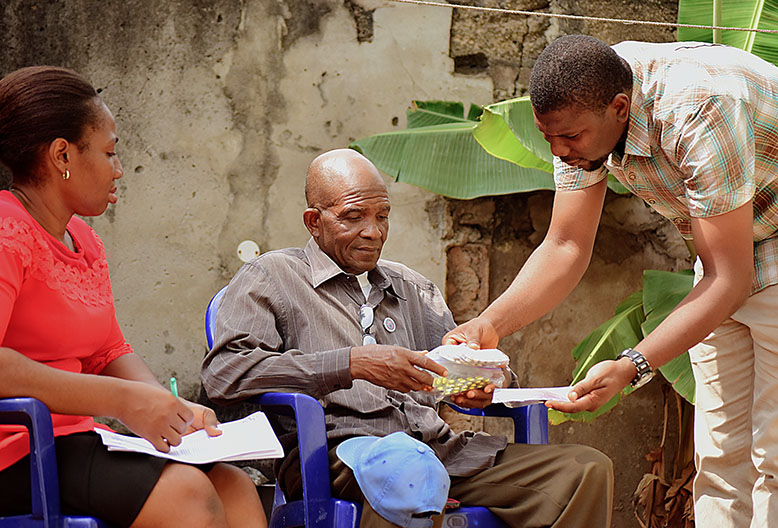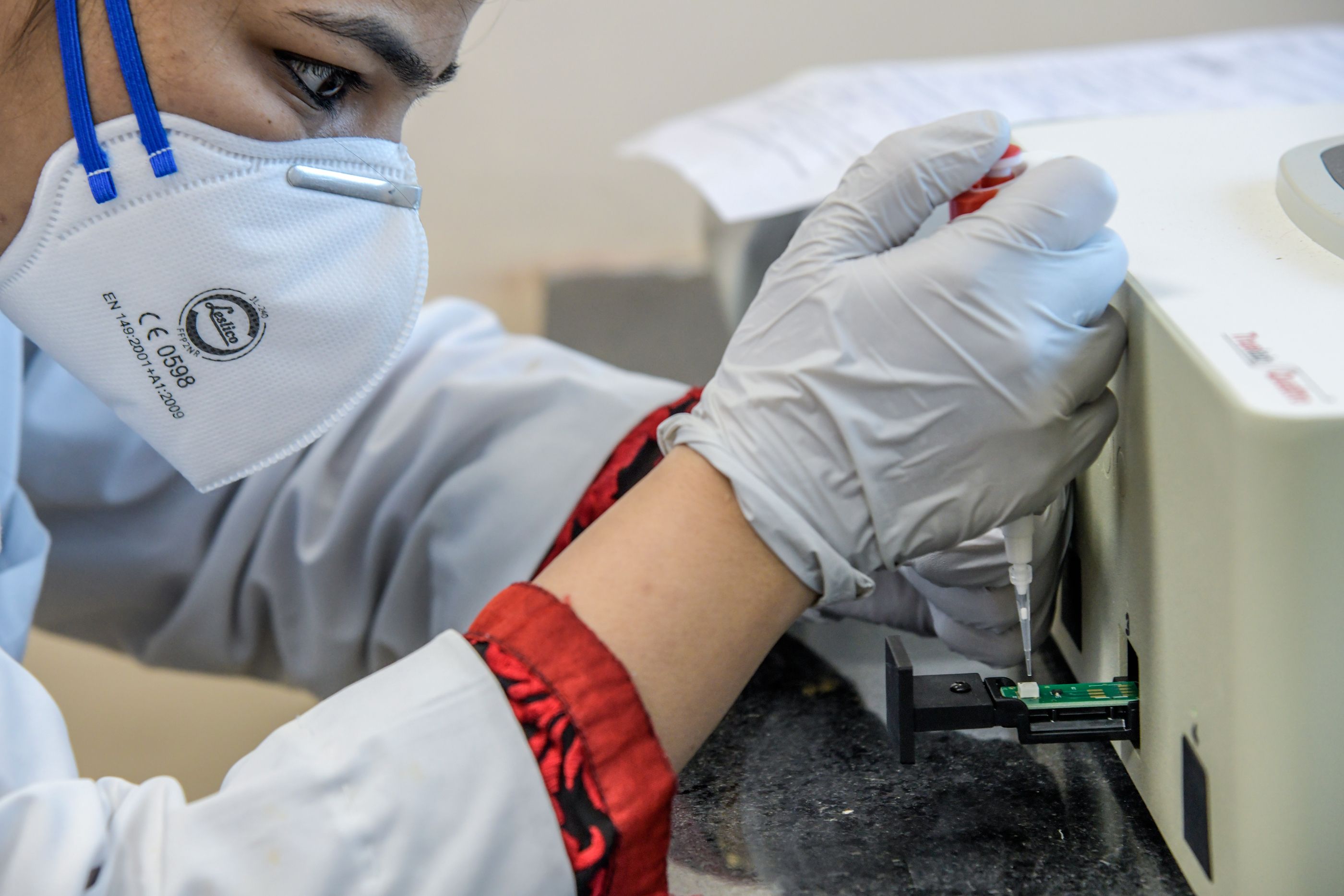Drug-resistant TB: Business As Usual No Longer An Option
I have spent the last 25 years working to prevent tuberculosis and treat people with the disease. I have seen firsthand the devastating consequences, including from drug-resistant TB, which is more deadly and more difficult and expensive to treat.
In Indonesia I have met patients who were unable to start treatment or had to abandon treatment because they did not have the money or were unable to physically access the care they needed. In Kazakhstan I have met people with drug-resistant TB who have been hospitalized for a year or more at a time only to lose their job and the ability to support themselves and their families.
Even before the COVID-19 pandemic, only one-third of the estimated 500,000 people with drug-resistant TB received treatment. Approximately half of those who go untreated will die.
I have also witnessed significant strides forward in identifying ‘missing’ people with TB –– those who go undetected, untreated, or unreported. In 2019, Global Fund investments contributed to the identification of an additional 1 million ‘missing’ TB patients in 13 high-burden countries compared to 2015. In countries where the Global Fund invests, TB deaths have dropped 28% since 2002.

A program officer for Hope Gives Care and Support Organisation in Anaemy Awka Arambra, Nigeria, provides at-home-care for a patient with drug-resistant TB.
Copyright: The Global Fund / Arinze Nwankwo
But the impact of COVID-19 has been worse than expected. Both COVID-19 and TB are airborne respiratory diseases, so many of the resources used to fight TB such as laboratory services, health workers and clinics, shifted to COVID-19. Lockdowns and other restrictions mean patients can’t get to health facilities for testing or to collect their medicines.
The results are alarming. According to the WHO’s 2021 Global Tuberculosis Report, there was an estimated 105,000 more TB deaths in 2020 compared to 2019. The number of people newly diagnosed with TB fell by 18%, reverting us back by almost a decade to the levels recorded in 2012, while the number of people globally with access to drug-resistant TB treatment declined by 15%. These declines were most severe in countries with the highest burden of the disease such as India, Indonesia, the Philippines and South Africa.
When fewer people are tested and treated for drug-resistant TB transmission increases, more people will get sick, and more people will die. We now face a critical moment in the fight to control the most severe form of the disease – and business as usual is no longer an option.
First, we need to be innovative to increase screening and testing for TB. Rather than expecting people to access health centres, community-based outreach teams should be deployed to screen people most at risk. This includes people living in urban slums, remote areas, and in places that are densely populated such as prisons and camps for people who have been displaced from their homes.
TB and COVID-19 testing should be integrated. Both diseases affect the lungs and have similar symptoms and the same tools can be used to test both diseases.
By testing COVID-19 and TB simultaneously we can improve early diagnosis and appropriate treatment for both diseases. The Global Fund’s COVID-19 Response Mechanism is already providing funding to implement this bi-directional testing in several countries.

In Mumbai, a diagnostic tool devised and manufactured in India called Truenat used for co-testing of both COVID-19 and tuberculosis.
Copyright: The Global Fund / Atul Loke / Panos
Drug-resistant TB treatment must also be urgently decentralized and brought into communities and people’s homes. Treating drug-resistant TB is grueling. Patients can be on daily medications that can have severe side-effects for up to two years, receive painful injections for the first six months and are sometimes hospitalized for months at a time. For the poorest and hardest to reach – the people who are most affected by drug-resistant TB - traveling to a health clinic every day for up to two years is extremely difficult; since COVID-19, it is in most cases impossible.
But new treatments now exist that are shorter oral regimens and have less severe side-effects. These treatments need to urgently become available to every person with drug-resistant TB and they need to be delivered to their homes with other vital services such as mental health care and nutrition support. Where possible, technology such as SMS and video calls should be used for remote support, monitoring and follow-up.
A radical shift is needed in diagnosis and treatment if we are going to make up the ground we have lost due to COVID-19.
Finally, we need to use the latest technology for real-time case-based reporting. COVID-19 has shown this is possible – but for TB there is only one country globally, India, that provides real-time data collection and reporting. Real-time case-based reporting needs to become standard, beginning with countries that have the highest burden of the disease. With real-time case-based reporting our responses will be informed and more agile.
The impact of COVID-19 on the fight against TB is alarming, but I remain optimistic that it can be reversed. If there is real commitment, including increased funding, and the proper actions are taken now, we will accelerate progress.
But we cannot wait. If we don’t act now, we will pay an extraordinary price in the future – not only will it be hugely expensive to get back on track, but too many lives will be lost.







